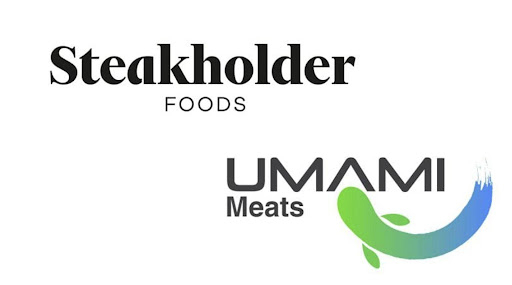
Steakholder Foods Ltd., an Israeli cultured-meat company that has been globally recognized for its 3D-bio printing technology, is poised to expand market opportunities in Singapore following the announcement of a collaboration with cultivated fish and seafood company, Umami Meats.
The news announced in early January is a major step forward for Steakholder Foods (NASDAQ: STKH), which launched in 2019 (formerly MeaTech 3D, Ltd.) and quickly become an industry leader in the field of cultivated beef, pork, and poultry. The start-up has been eyeing expansion, especially in Asian markets with the addition of fish and seafood products to its lineup.
The company's initiative with Singaporean Umami Foods is especially significant since Singapore is the first and only country in the world that has so far approved the sale of facility-made meat products. In addition to expanding operations in a country actively embracing alternative meat production, the seafood and fish market is prime for the opportunity, with an estimated value of $110 billion and expected to increase 3.6% annually over the next decade.
The two companies will work together to produce cultivated eel and grouper with a prototype projected to be completed by the end of the first quarter of 2023. Funding for the project is provided through a grant of up to $1 million from the Singapore Israel Industrial R&D Foundation (SIIRD). The organization is a cooperation between Enterprise Singapore (ESG) and the Israel Innovation Authority (IIA) and encourages partnerships between companies from the two countries.
"Industry collaborations are a critical aspect of our long-term business strategy," Steakholder Foods' vice president of business development, Yair Ayalon, said in a recent press release. "Our partnership with Umami Meats is especially meaningful following our recent patent application for fish texture and because it is supported by a joint Israeli/Singaporean government initiative of which we are very proud to be a part."
Following its unique deep-tech process to create a hybrid grouper product, Steakholder Foods will first select optimal cells from Umami Meats to develop bio-ink that will produce the flaky texture most associated with cooked fish. The 3D printer will then be used to cut the detailed digital design.
In back-to-back developments all over the world, Steakholder Foods has been established at the forefront of the facility-grown meat industry, which is expected to produce billions of pounds of the world's meat supply by 2030. From its beginnings in Rehovot, Israel, the company acquired Belgium's cultured poultry company Peace of Meat in 2021, and by the end of that year, Steakholder was credited with producing the largest cultivated steak.
By March 2022, the company saw expansion in the United States with a patent on its technology. Concurrently, Steakholder launched a research and development facility in Antwerp, Belgium. The company would go on to obtain patents in both Australia and New Zealand. Prior to the announcement of collaboration with Umami Meats, Steakholder announced late in 2022 the receipt of a registered trademark of its name in Japan where officials began discussions of the possibility of the commercialization of cultivated-meat.
Steakholder Foods' mission behind its technological advancements in raw material and whole cut cultivated meat production is to further advance the alternatives to industrialized farming and fishing. The slaughter-free solution spares harm to both animals and the planet and promotes sustainability. According to the company, a third of global emissions comes from the food industry, with 17 percent from agriculture and 18 percent from the meat industry. Steakholder's quest is to reduce the carbon footprint of the meat industry as well as increase food security around the globe and conserve water and land usage.
Mihir Pershad, CEO and founder of Umami Meats, said his company's mission mirrors that of Steakholder Foods and looks forward to the collaboration.
"We are thrilled to be combining our deep knowledge and experience in cultivated seafood with Steakholder Foods' innovative 3D bio-printing technology," he said in the release. "We believe this partnership will help us advance our vision of a new, more sustainable food system for preserving our marine ecosystems while delivering exceptional, high-quality seafood to meet growing consumer demand."









